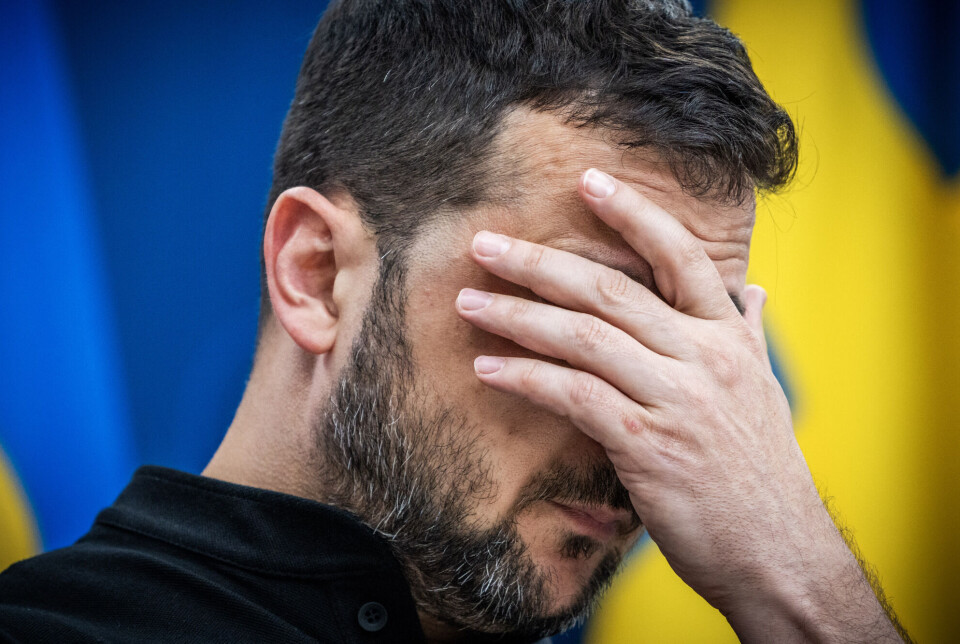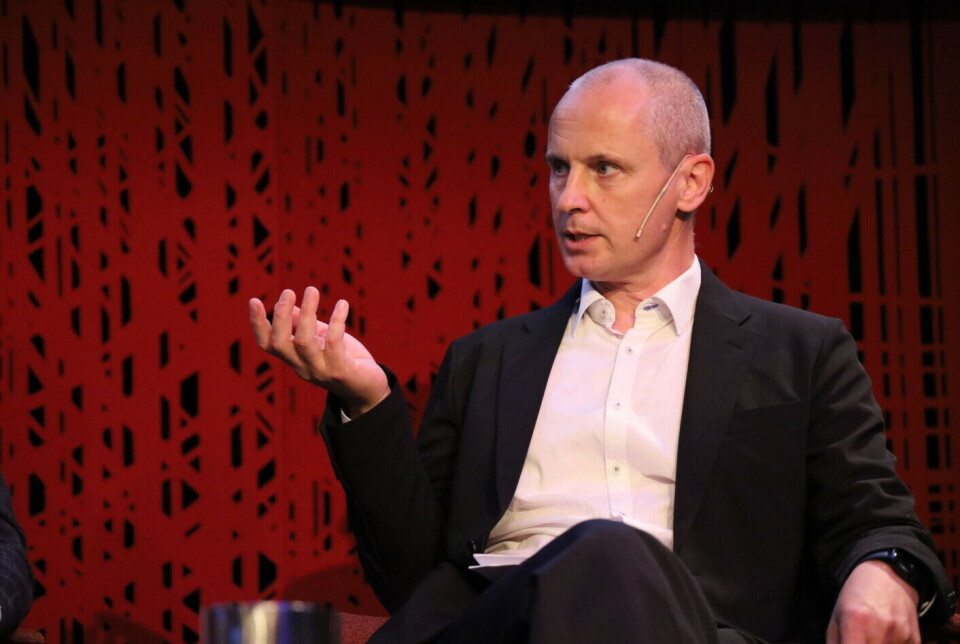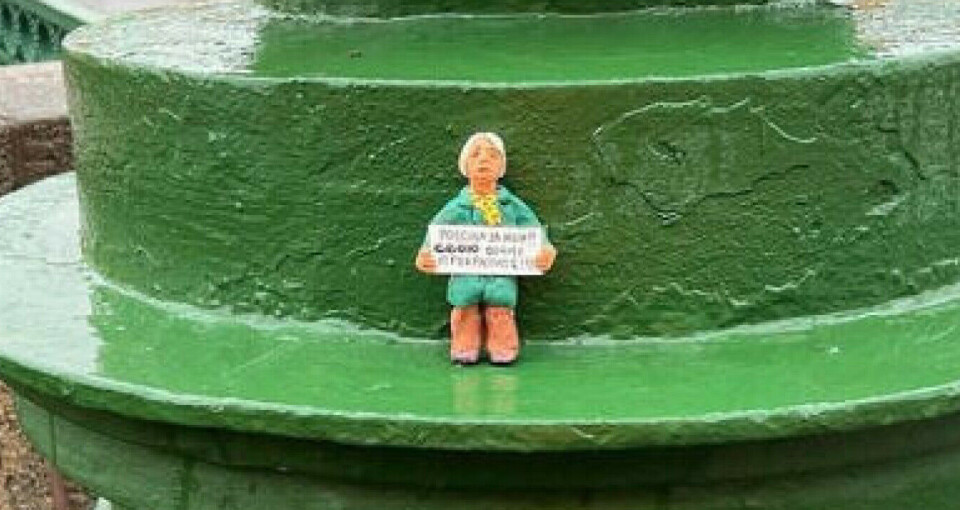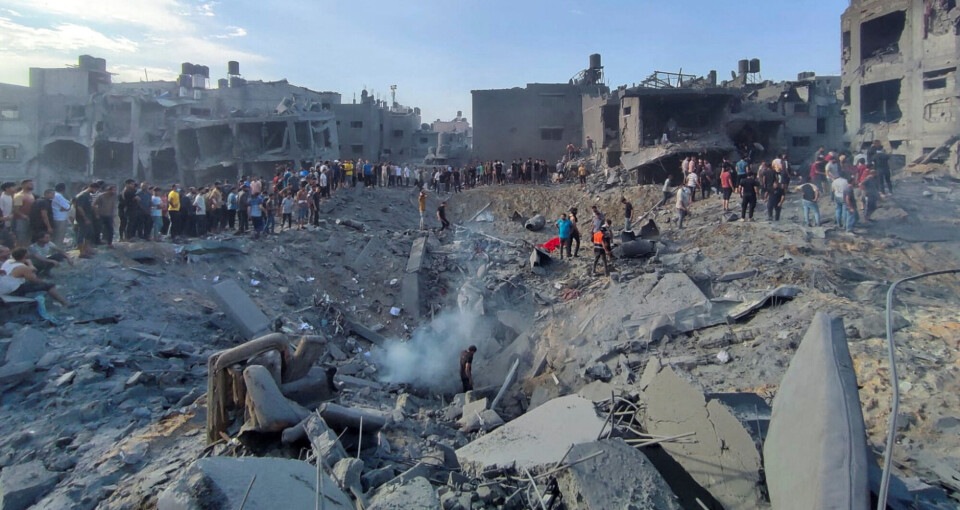
What would happen if Ukraine falls?
If Russia wins the war in Ukraine, it will be because we chose to let it happen, a defence researcher believes.
President Zelensky has called this autumn a crucial time for Ukraine's future.
The situation is critical.
As Russia continues its aerial assaults and fierce fighting rages on both Russian and Ukrainian soil, the USA approaches a pivotal election.
If Donald Trump wins the election, the future of USA military aid to Ukraine remains uncertain. Trump has stated he would push for both sides to negotiate.
Long-term outcomes are predictable
What will happen to Ukraine if they are forced to end their resistance against Russia?
“While no one knows the short-term consequences, the long-term outcome of Ukraine’s defeat is more predictable.”
This is the view of Professor Sven G. Holtsmark, who addressed the opening of the Norwegian Institute for Defence Studies’ annual conference on September 3rd.
Negotiation means capitulation
Holtsmark is clear about the consequences of forcing Ukraine to the negotiating table.
In his opinion, forcing Ukraine to negotiate would be tantamount to accepting Ukrainian capitulation.
“Some argue that Russia has offered genuine security guarantees for Ukraine in a potential peace agreement. This is not correct,” he says.
What has Putin said?
Holtsmark urges people to closely examine what Russian President Vladimir Putin has explicitly stated about the country he has invaded: Ukraine is not Ukraine. Ukraine is Russia.
“If we are to believe Putin's latest statements, Russia’s minimum requirement in a peace negotiation will be for Ukraine to cede all the territories that Russia has annexed. In other words, far more than what they physically control today,” he says.
The remainder of Ukraine would face severe restrictions on its sovereignty, both domestically and internationally. They will become heavily dependent on Russia, both economically and for security, Holtsmark believes.
“Russia will then, either immediately or gradually, secure full control over the entire country, simply because Ukraine will not be able to prevent it,” he says.
Becomes part of the Federation
If Ukraine shows signs of military defeat, Russia may opt for a quicker solution, the professor believes.
“They could continue the war until Ukraine is left with no choice but to accept a complete and unconditional surrender,” he says.
At that point, we know what will happen, says Holtsmark.

“A new regime would be installed. In keeping with Soviet and Russian tradition, this regime would likely sign something called a ‘treaty of friendship, alliance, and assistance’ with Russia,” he says.
Before long, Ukraine would be absorbed into the Russian Federation.
We have a choice
Holtsmark believes that if Ukraine disappears from the world map, it will not be because Ukraine was doomed to lose this war.
Nor will it be because the West and NATO lacked the military or economic resources to stop Russia.
“It will be because we, the West and Norway, through our political decisions, allowed it to happen. We chose to let Ukraine fall. We made this choice because we believed it was in our best interest,” says Holtsmark.
What will happen to our security?
This will have serious implications for the security of Norway and Europe.
It will also affect Norwegian taxpayers.
We are the ones who will have to finance the rearmament needed to face the next confrontation with Russia, Holtsmark reminds us.
Tor Bukkvoll, senior research fellow at the Norwegian Defence Research Establishment (FFI), is not worried about Russian aggression in the short term. He believes it will take time for Russia to rebuild its military after this war.

“Of course, that depends on how long the war lasts. But Russia is depleting its weapons stockpiles now. Restoring them to pre-war levels will be difficult,” he says.
In the long term, money will also become an issue for Russia, he believes.
Right now, Russia has the financial resources to carry on with this war. But if spending continues at the current rate, researchers estimate that by 2030, Russia could face a severe shortage of funds, explains Bukkvoll.
We have strengthened our own defence
Paal Hilde, professor at the Norwegian Institute for Defence Studies, believes it is highly unlikely that Russia will attack a NATO country in the near future.
It will take more than a decade before Russia can challenge NATO. By that time, the war in Ukraine might be over, or it could still be ongoing, he said at the conference.
Hilde believes there are several reasons to be optimistic. In recent years, largely driven by Putin's war of aggression, we have made significant progress in enhancing our defence capabilities.
“We’re witnessing a major military buildup across Europe, and NATO is now stronger in Northern Europe,” he says.
No reason for sleepless nights
When Donald Trump was president, he threatened to withdraw the USA from NATO, causing a major shock in Europe.
But even if Trump wins the election this autumn, Paal Hilde won’t lose sleep over it.
There is no doubt that Trump will undermine NATO's Article 5, he believes.

Article 5 states that if one or more NATO countries face an armed attack, it will be considered an attack on all member nations.
However, much has happened since Trump was last president. If Russia were to attack in a few years, we would be capable of defending ourselves.
“Northern Europe will be so militarily strong, in my view, that there’s no need to lose sleep over it. We have a fairly robust defence that would give the Russian military serious difficulties,” says Hilde.
Additionally, the USA has a vested interest in keeping an eye on what is happening in the northern regions, he believes.
“The USA is in Europe because it serves their interests. They’re not here out of charity. The missiles on Russia’s submarines in the north aren’t aimed at Norway, but at the USA,” he says.
———
Translated by Alette Bjordal Gjellesvik
Read the Norwegian version of this article on forskning.no






































